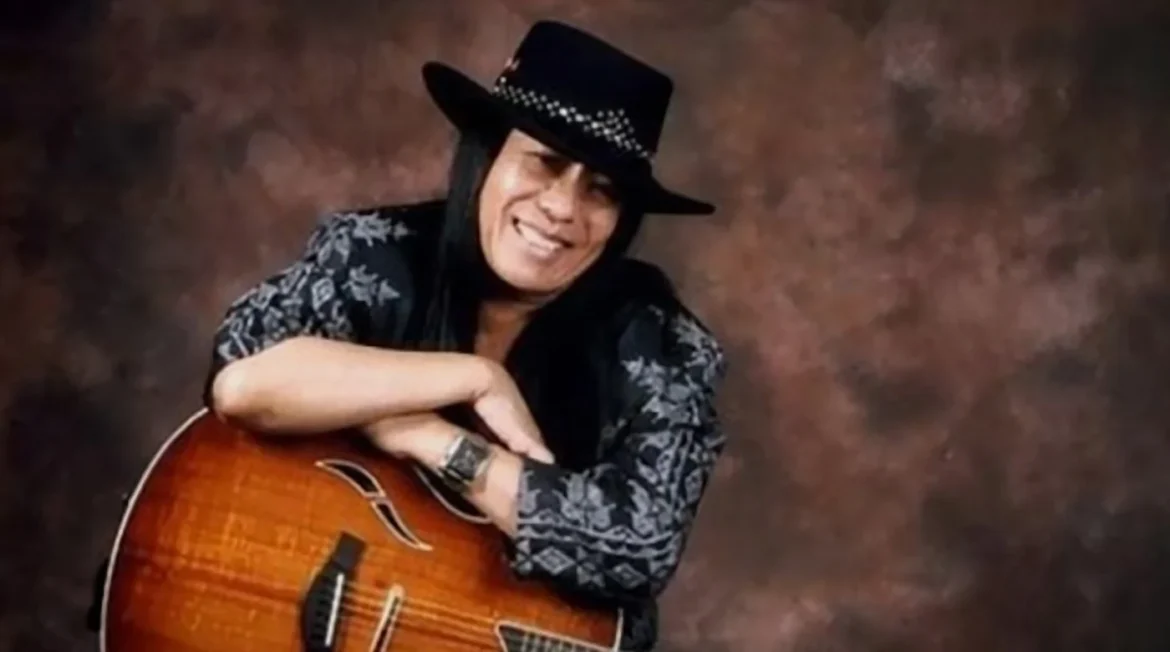
Freddie Aguilar (February 5, 1953 – May 27, 2025): The Voice of a Nation
Freddie Aguilar, born Ferdinand Pascual Aguilar in Santo Tomas, Isabela, was a towering figure in Filipino music and a cultural icon whose voice captured the soul of a nation. Best known for his timeless hit “Anak” and his stirring rendition of “Bayan Ko,” Aguilar was more than a musician—he was a storyteller, a patriot, and a conscience for the Filipino people. His music, steeped in themes of family, nationalism, and social justice, earned him a revered place in the pantheon of Original Pilipino Music (OPM).
Early Life and Musical Beginnings
Freddie Aguilar’s musical journey began early. At 14, he was already composing songs. By 17, he had taught himself to play the guitar. Although he enrolled in an Electrical Engineering program at the De Guzman Institute of Technology, he left college at the age of 18 to pursue music full-time, much to the dismay of his conservative parents. This decision marked the beginning of a long and arduous path that would lead to both personal and artistic fulfillment.
After leaving home, Aguilar spent years as a struggling musician, playing in small folk clubs and street corners. His influences ranged from Western folk artists like Bob Dylan, Cat Stevens, and James Taylor to traditional Filipino melodies. These early years, filled with hardship and introspection, shaped the emotional depth and sincerity that would become hallmarks of his music.
The Phenomenon of “Anak”
Freddie Aguilar’s rise to fame came in 1978 with the release of “Anak,” a song he wrote as a heartfelt apology to his parents. The lyrics told the story of a wayward child who strayed from the path of righteousness and returns home with regret. Its message of repentance and familial love resonated not just with Filipinos but with people across cultures and continents.
.
.
“Anak” became the best-selling Philippine music record of all time, with over 33 million copies sold worldwide. It was translated into 51 languages, making it the most translated Filipino song in history. Its haunting melody and universal message made it a global phenomenon, earning Aguilar international acclaim. “Anak” was not just a song; it was a confession, a prayer, and a mirror held up to society.
Nationalism and “Bayan Ko”
Freddie Aguilar’s role in Philippine history extended beyond music charts. In the turbulent political climate of the 1980s, he became a prominent figure in the protest movement against the dictatorship of Ferdinand Marcos. His rendition of “Bayan Ko,” a patriotic song originally composed in the 1920s, became a rallying cry for freedom.
Though the song had long been regarded as subversive, Aguilar’s soulful and defiant version reawakened its revolutionary spirit. He performed it during the funeral of Senator Benigno Aquino Jr. in 1983, an event that catalyzed the People Power Revolution. The song became the unofficial anthem of the opposition, sung by millions of Filipinos during demonstrations. Aguilar’s voice, imbued with sincerity and urgency, gave power to the silent and hope to the oppressed.
Musical Style and Themes
Freddie Aguilar’s music transcended genres. Though often classified under Pinoy rock and folk, his songs embraced a wide array of styles including blues, kundiman, and balladry. What made his work distinct was not just musicality but message. His songs tackled social issues—poverty, corruption, injustice—with an honesty that few dared to express.
He sang about the struggles of the common Filipino, the plight of overseas workers, and the moral decline in society. In songs like “Magdalena,” he told the story of a woman forced into prostitution; in “Mindanao,” he addressed the suffering caused by war in the southern Philippines. His music was both art and activism, providing a voice to those often unheard.
International Recognition and Legacy
While “Anak” was his most commercially successful song, Freddie Aguilar’s impact reached far beyond that single hit. He performed in various international venues, representing the Philippines with pride and grace. He was one of the few Filipino artists to have achieved massive global success without compromising his cultural identity. Wherever he went, he carried the flag of his homeland not just literally, but through every chord and lyric.
Aguilar’s contributions earned him numerous awards and recognitions over the decades. Yet, perhaps his greatest accolade was the enduring relevance of his work. Generations of Filipinos grew up listening to his music, finding comfort, courage, and identity within it.
.

.
Personal Life and Controversies
Freddie Aguilar’s life, like his music, was filled with drama, intensity, and a deep sense of conviction. He married Josephine Queipo in the 1970s and had four children, including Maegan Aguilar, who followed in his musical footsteps. In 2013, Aguilar converted to Islam and adopted the Muslim name Abdul Farid. This conversion stirred public controversy, particularly when he revealed that he had married a 16-year-old girl under Islamic rites. Aguilar defended the union, stating it was conducted in accordance with his new faith’s practices.
He was no stranger to controversy. Whether it was his political affiliations, outspoken views, or unconventional choices, Aguilar remained unapologetically himself. He saw his life as a continuation of his music—authentic, sometimes discordant, but always resonant.
A Devastating Loss
In 2018, tragedy struck when a fire destroyed Freddie Aguilar’s home in Quezon City. The blaze consumed priceless memorabilia: awards, guitars, records, and handwritten lyrics. While the physical remnants of his career were lost, the intangible legacy—his influence, his music, and his message—remained intact and untouchable.
Aguilar remained active in music and public service well into his later years. He made attempts to enter politics, running for a Senate seat, advocating for cultural preservation and the rights of artists. Though unsuccessful in his bid, his commitment to national service was widely acknowledged.
Death and Posthumous Recognition
Freddie Aguilar died on May 27, 2025, at the age of 72, due to complications from cardiac arrest, exacerbated by kidney issues and pneumonia. His death marked the end of an era in Filipino music and national consciousness.
Legacy and Impact
Freddie Aguilar’s legacy is not merely musical; it is cultural and historical. He is one of the few artists who successfully bridged the personal with the political, the poetic with the powerful. His music did not just entertain—it educated, provoked, and mobilized.
He gave voice to the marginalized and lent dignity to the forgotten. He showed that Filipino music could speak in its own tongue and still be heard around the world. He proved that art, when rooted in truth, can influence change and even shape the course of a nation.
Freddie Aguilar also played a critical role in elevating OPM as a genre. Before “Anak,” Filipino artists often sang in English to appeal to global audiences. Aguilar defied this norm, choosing to sing in Tagalog. He demonstrated that authenticity, rather than assimilation, was the key to universal appeal.
Today, aspiring musicians cite him as a major influence. His songs are staples in school curriculums, his lyrics quoted in speeches, his life turned into documentaries. His voice continues to echo in the hearts of Filipinos and in every place where someone listens to “Anak” and feels seen, heard, and understood.
Check out Freddie Aguilar on Amazon by clicking here.
If you found this interesting please share it with your friends and family, and check out some of our other articles on Musicians who Died in 2025.
.

